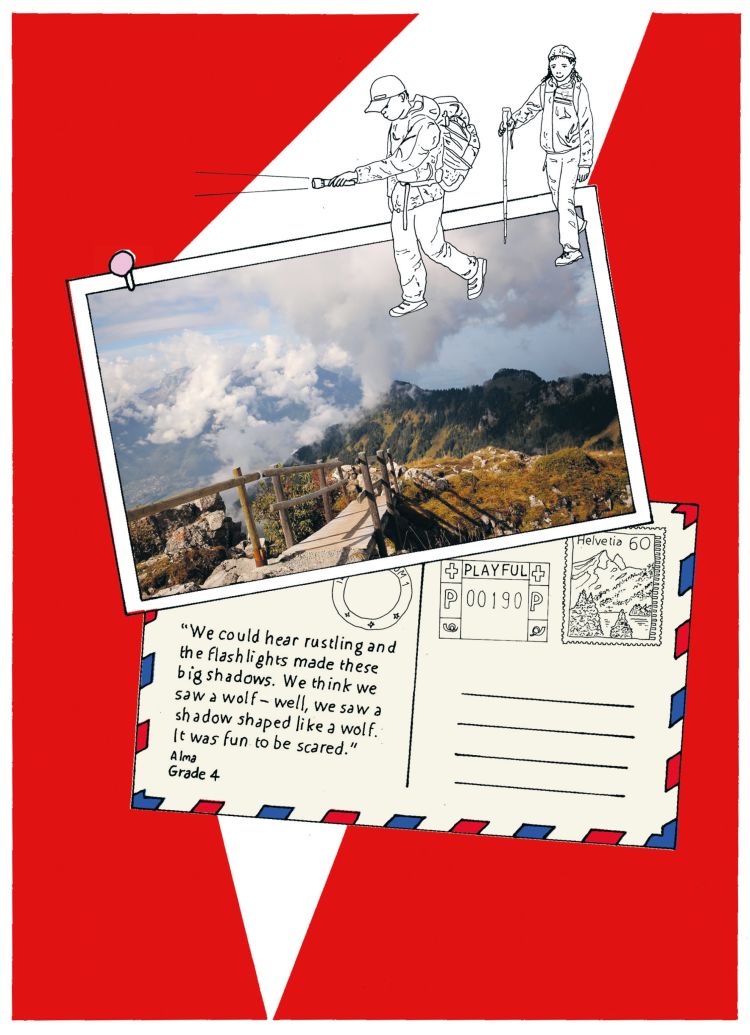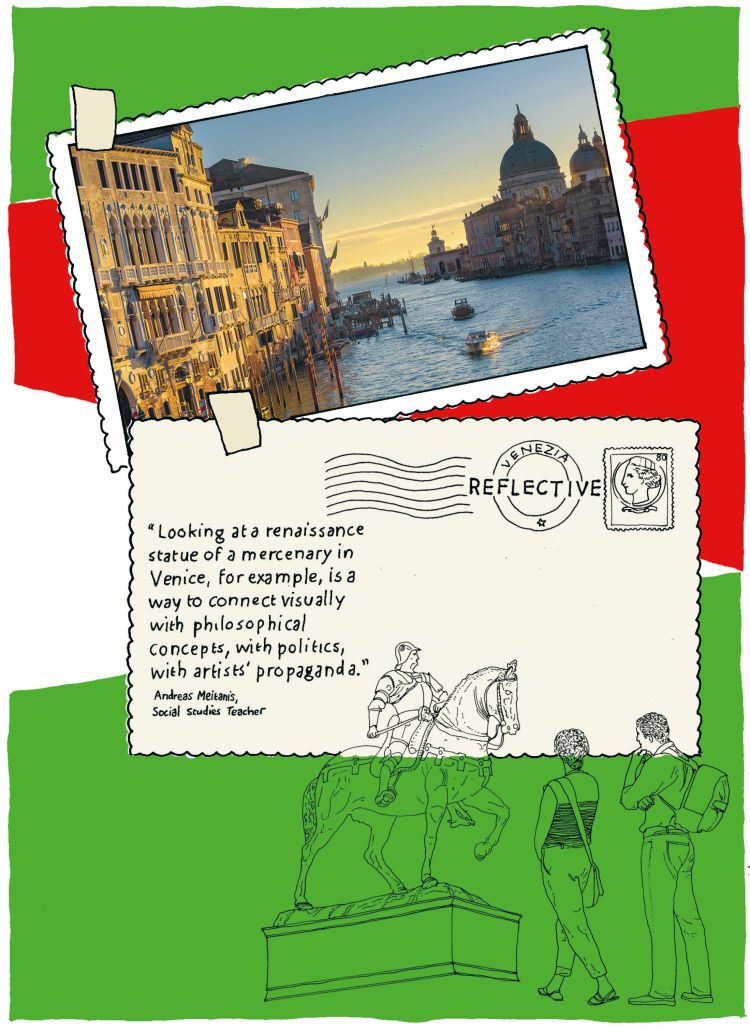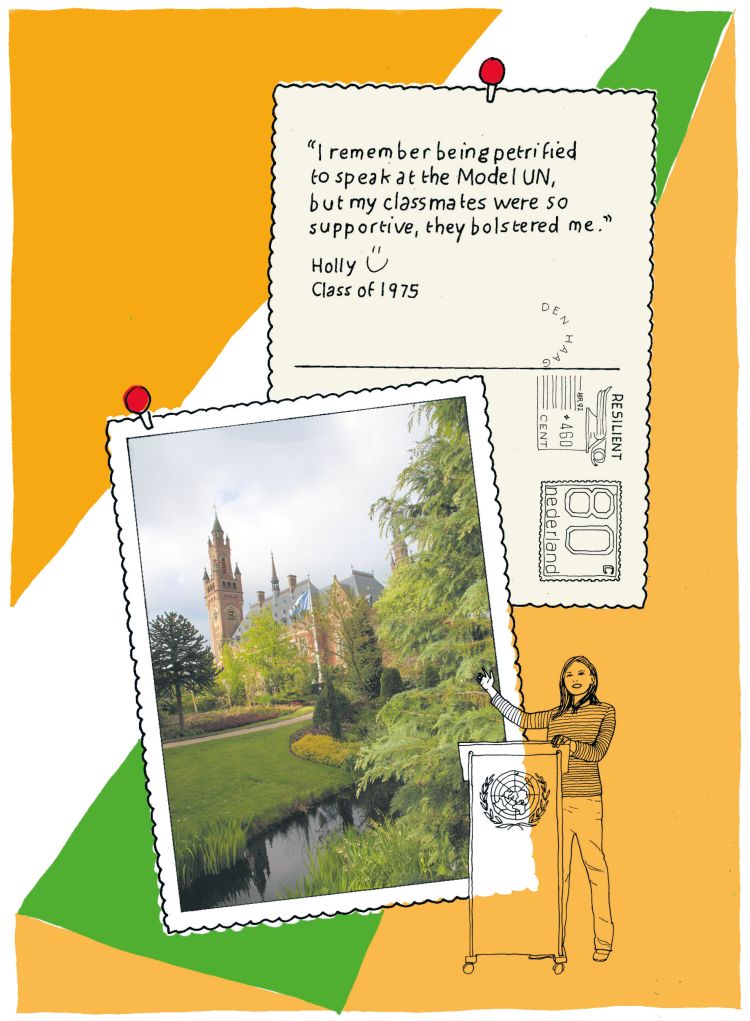A voyage of discovery
Since 1963, students have journeyed to new worlds of friendship, language and culture - all while on a school trip
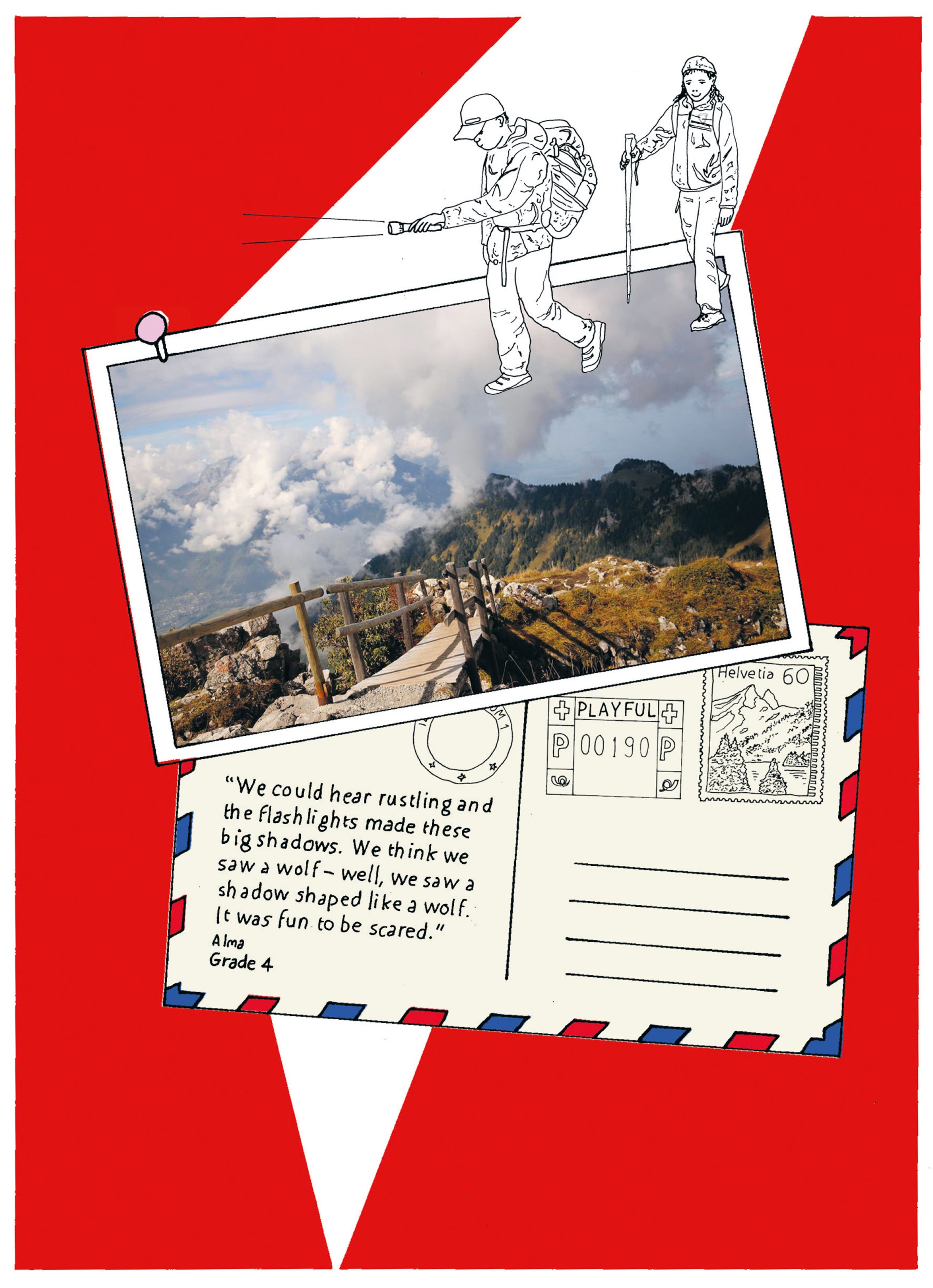
Waking up far away from home with students you barely know, being presented with an entire fish on a plate for the first time, or stumbling across a wolf on a night hike – a school trip can take you out of your comfort zone. For some, it’s a first taste of independence; for others it’s a chance to test themselves in a totally new environment. But for everyone, trips often provide the most indelible memories of their time at school.
Austin Cervone, Class of 2014 (2003-06), says he will never forget the mountain residential trip he went on aged seven. “We hiked along the side of a glacier – very steep and covered in snow. We hiked across very carefully and I thought: ‘Wow, they trust me enough to walk across this thing!’
“In the classroom, you trust that the teachers are looking out for your safety. Of course, here they were too, but I was conscious that it was down to me whether or not I slipped and fell. Actually I think the parents were walking below us, in case we fell, but that wasn’t really made a big deal of. It was my first sense of risk management for myself.”
For Holly Fasano, Class of 1975 (1970-75), the memory of getting to know people in a different way is the strongest of her many AISZ trips. “I think the quantity of time you spend with people on trips leads to quality moments,” she says. “Including with the teachers. At school they have to stick to the curriculum but if Mr Kinniburgh (Maths and physics teacher, 1969-90) falls down on a ski trip you can both laugh about it. You’re more relaxed. I remember the ski team had these sweaters – blue with a yellow stripe – and we would get their second-hand ones and all wear them on the trips.”
There are also the moments of self-discovery that come with challenge. Holly remembers being confronted by an entire fish, complete with head, on her plate in a restaurant in Madrid, “still in a swimming position”. And Alma Tali Levi (Grade 4) experienced the thrill of fear on a night hike during a mountain residential trip to Leysin last year. “We could hear rustling and the flashlights made these big shadows. We think we saw a wolf – well, we saw a shadow shaped like a wolf. It was fun to be scared.”
“I learned that it doesn’t matter who you are with, as long as you’re enjoying yourself,” she adds.
I thought: 'Wow, they trust me enough to walk across this thing!'
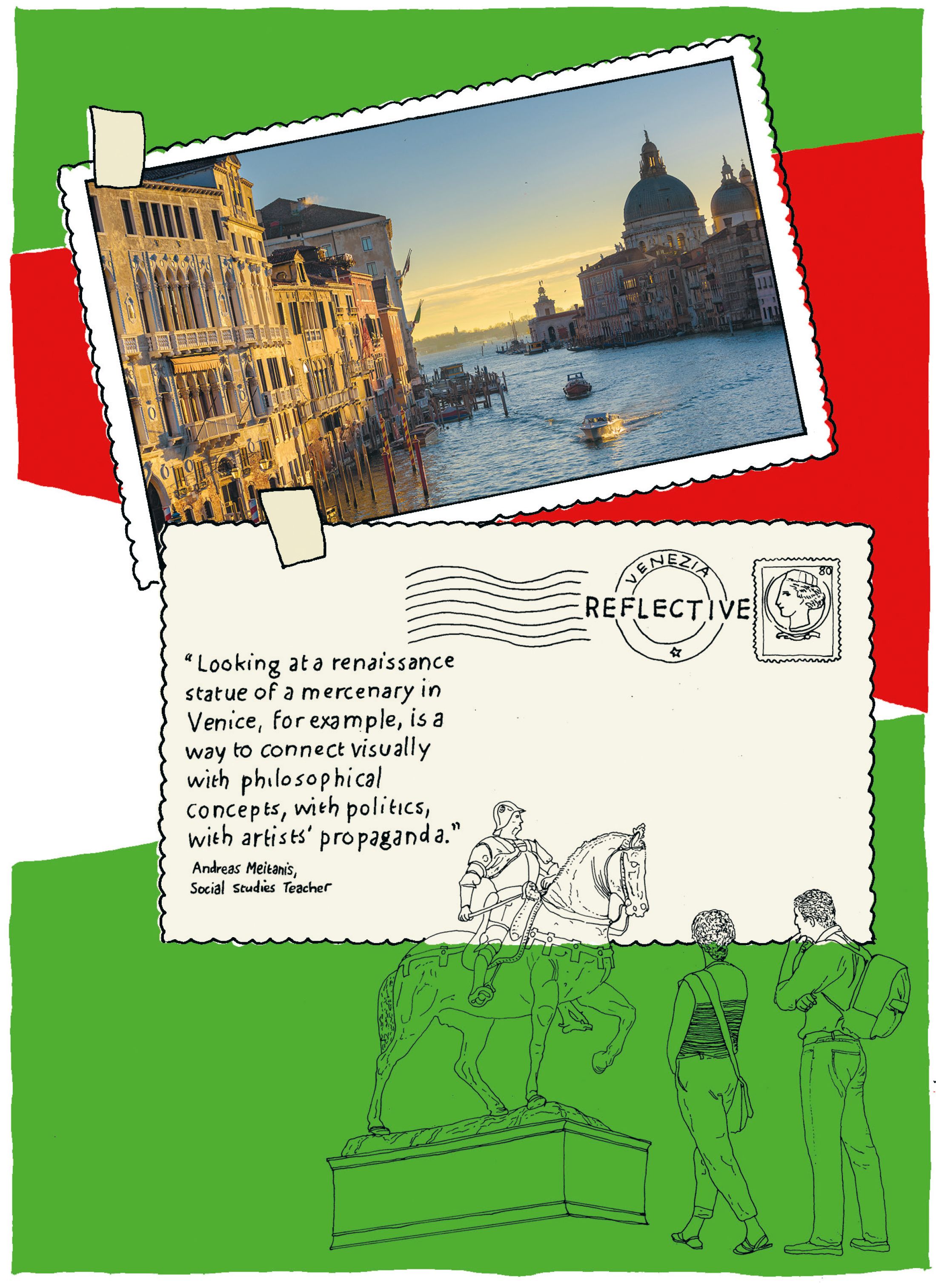
For Alma, freedom came in simply being able to choose her lunch. “We packed our own sandwiches and you could choose your own fillings – I had turkey and cucumber and lettuce. At night you could choose what you put in your tacos, and I ate six!”
She also learned practical skills. “I like being inside usually,” Alma says, “but I liked being outside on the trip. I learned how to make a shelter out of mud and leaves – for it to be waterproof you have to put leaves an arm deep. I learned that to make a fire you should strike a match inwards.” She also learned that her teachers were young once, as they told stories about hikes they’d been on when they were children. “That was weird,” she adds.
The feeling of independence is something Rajvir Singh, Class of 2015 (2008-15), remembers from his Model United Nations trips. “I was 14, alone with a group in St Petersburg, debating against kids who were 18 and 19. It was a trial by fire! We really enjoyed it. We were acting like we had a day job, then going out for dinner in the evening. It was very refreshing. When you’re 14 you think you’re 18 anyway! You feel mature, and when you’re given that freedom you feel the responsibility to step up. It’s a controlled exposure to the real world.”
Austin agrees, and points out the value of trips in breaking down the walls between cultures. “I remember speaking to people I’d never spoken to before and it being part of sensory overload for me,” he says. “I wasn’t used to such a plethora of perspectives. I still have the bandana signed by everyone in my group. In the US now there is so much fear of difference, but at ZIS there was a pride in diversity. My brother Brendon Cervone, [Class of 2009 (2003-06)], who’s 26 now, still talks about a ZIS trip to Normandy where, on the beaches, he discussed the Second World War with students from all different perspectives – the Allies, the Axis – and recognized where people were coming from. It was so powerful for him.”
For Andreas Meitanis, Upper School Social Studies teacher, it’s that sense of perspective that is all-important. “The ‘classroom without walls’ is a noble concept,” he says. “In class, the kids’ question is always, ‘Is it going to be on the test?’ On a trip, that question is out. The idea is, let’s take them outside for a week, and do something that adds to their knowledge and experience. However, the trips need to be organised, well focused and well thought out to reflect the principles they were founded on.”
Before they can sign up for one of his Classroom Without Walls (CWW) trips, Andreas makes it very clear that the students aren’t going on holiday. “On my trips I don’t use guides, I ask the kids to prepare to be guides. They could be giving a one-and-a-half-hour presentation on an artefact or archaeological site. Sometimes they’re so good I almost cry.”
Hard skills, soft skills, life skills - what you can learn on a school trip is limitless
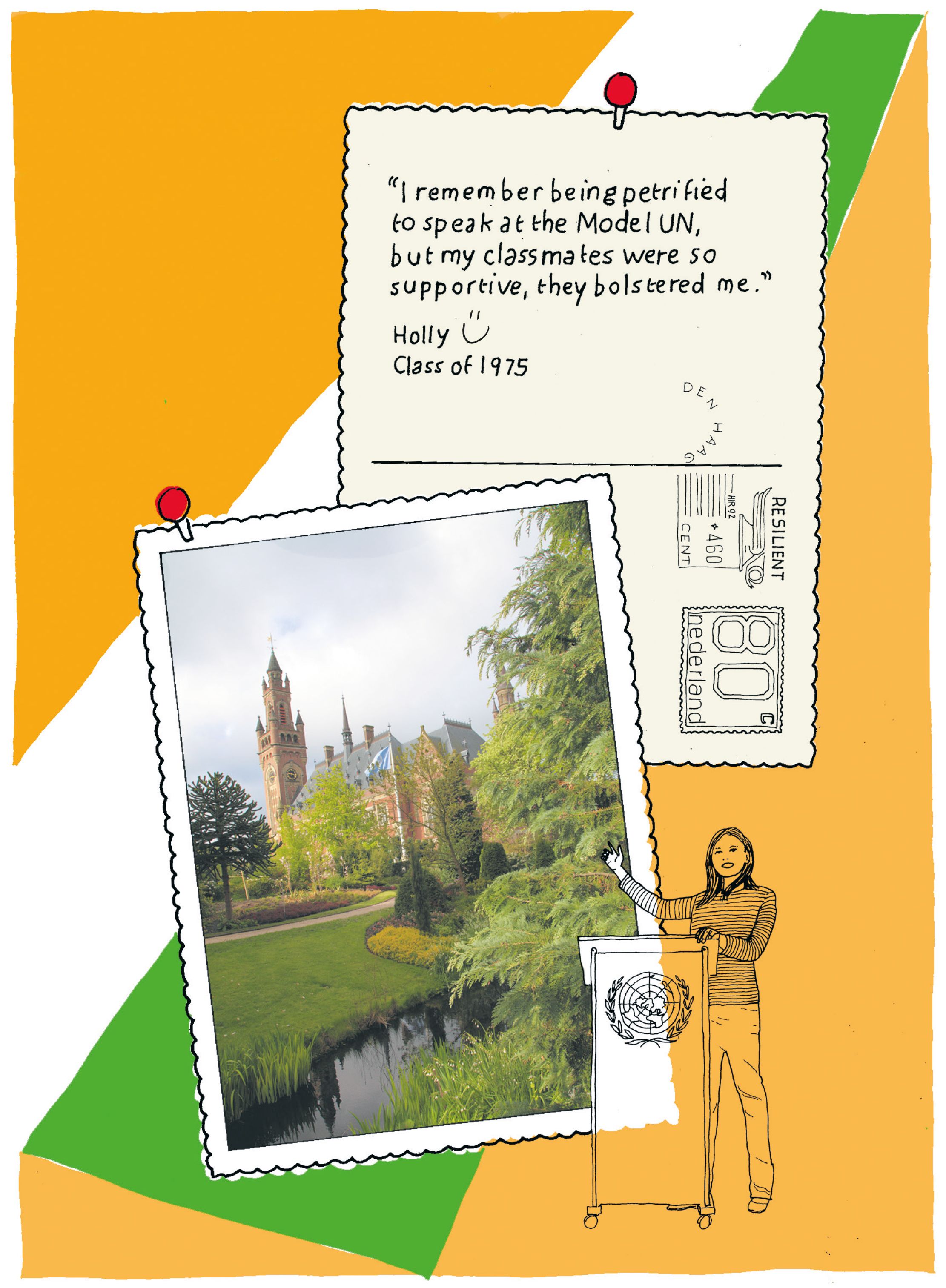
For Andreas, it is the intangibles that come out of the trips that makes them so special. “I love the sailing trip we go on to Poros in Greece,” he explains. “The kids are fidgety because they’re so used to always doing something. But here you have three hours in the same 10 square metres, so you’d better socialise. I don’t talk, I just listen to them. A leisurely conversation can take you all over the place. I love it when the kids start ruminating. In Crete we have two-hour lunches and we all eat together four days out of six. The kids will say to me, ‘I was talking to James, he’s actually a nice guy!’ It’s a chance to mingle.”
“People come out of their shells,” agrees Rajvir. “You might set off with certain opinions of people, but when you’re on a trip you’re on the same team, and you often realise you were wrong about them.”
“You also see people’s weaknesses,” adds Holly. “And sometimes your own. I remember being petrified to speak at the Model UN, but my classmates were so supportive, they bolstered me.”
Rajvir is now studying management at St Andrews University and feels the Model UN trips prepared him for his “actual college skill set”. “Tutorials are much easier for me,” he says, “because I’ve spoken in a room of 300. At school you can be quite sheltered, but on these debate trips you’re putting yourself out there, and other people are not afraid to tell you you’re talking rubbish. You have to have natural arrogance to debate, you have to convince people that you’re right, like in a job interview. But if you’re too cocky no-one has time for you. You need to have the right amount of confidence.”
Hard skills, soft skills, life skills – what you can learn on a school trip is limitless, explains Andreas. “Looking at a Renaissance statue of a mercenary in Venice, for example, is a way to connect visually with philosophical concepts, with politics, with artists’ propaganda. The other day I was linking the industrial revolution and deforestation with the Arsenale in Venice. The students were laughing at me, saying: ‘Is there a day you won’t mention our trip to Venice?’ I said: ‘If I don’t, give me five minutes and I’ll think of something!’”

